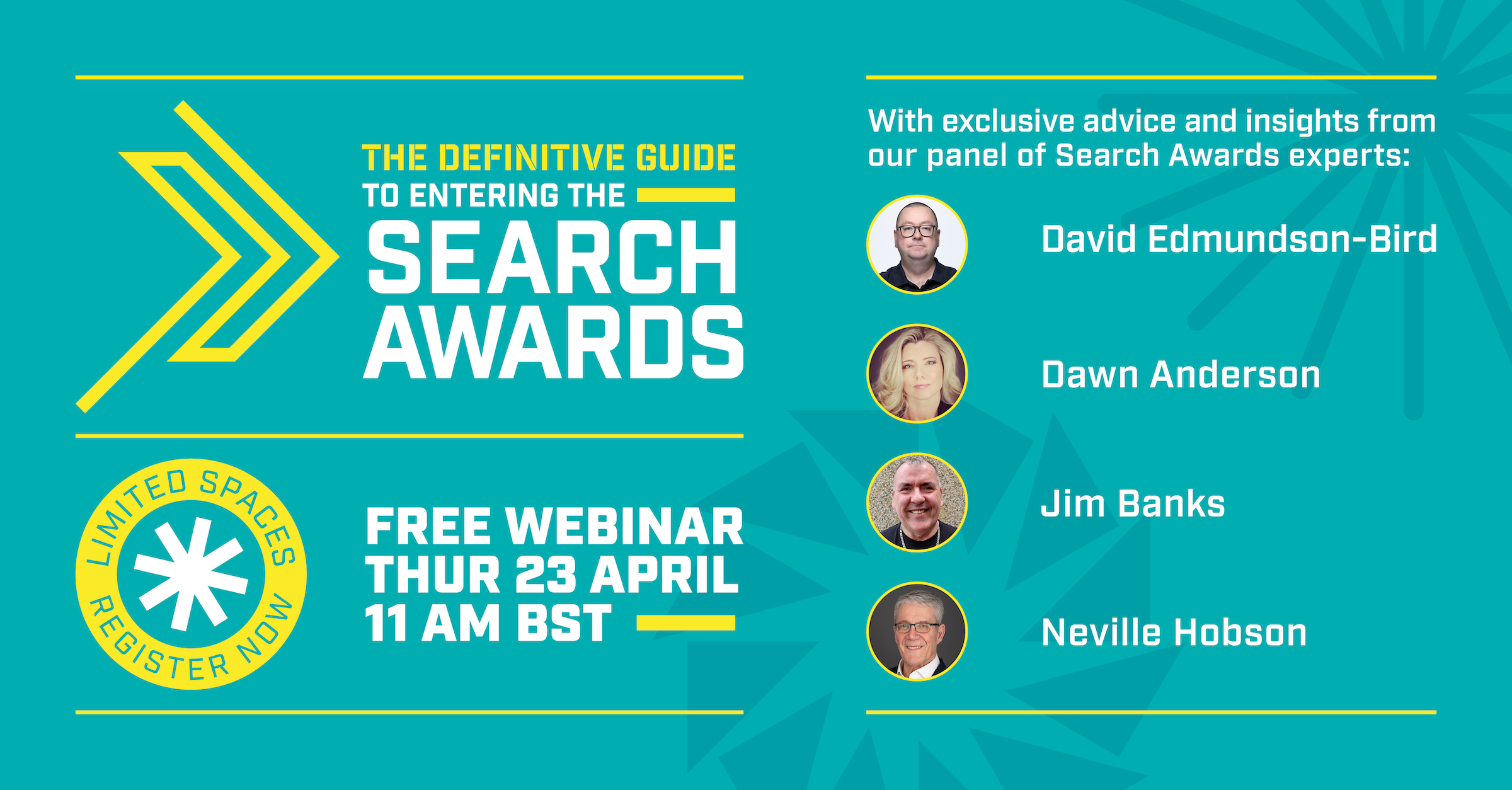We asked ‘What Are the Search Trends to Look Out For in 2026?’ Read on to find out what the top agencies and people think will be the key to success.
Monika lwanczyszyn , Performance Marketing Specialist, and Andrew Ucher, MONSOON Agency
“Looking ahead to 2026, automation will continue to redefine how search campaigns are managed. Google’s steady push toward smart bidding, Performance Max, and the emerging “Max Search” model signals a future where campaigns are increasingly machine-led. While this opens exciting opportunities for scale, it also comes with challenges. Overly broad AI-driven targeting can dilute intent and waste spend if not carefully managed. At MONSOON, we see the winning approach as one where agencies deliver clean, reliable conversion signals to the system while applying strategic oversight to ensure automation stays aligned with business objectives.
Beyond automation, the very definition of “search” is broadening. We expect image and video-based queries to grow rapidly, voice search to gain mainstream adoption, and conversational AI platforms like Gemini or GPT to function increasingly as search engines in their own right. For a digital marketing agency like MONSOON, this shift means preparing clients for discovery journeys that extend well beyond the traditional SERP. In practice, that involves creating campaigns and assets that anticipate multi-modal search behaviours – whether someone is speaking a query, snapping a product photo, or asking a chatbot for recommendations. As we move into 2026, the standout trend won’t just be automation itself, but the ability to blend human strategy with AI-driven systems across a much more diverse and dynamic search landscape.”
MONSOON Agency / Monika lwanczyszyn / Andrew Ucher
Klaudia Smykla, SEO & UX Specialist, Midero
The future of SEO in 2026 isn’t about “more of the same” – it’s a profound evolution powered by AI, true multi-channel strategies, and advanced personalization. Websites will need to be designed for actual users, not just algorithms; Google is no longer the only source of traffic, with platforms like TikTok, YouTube, and AI voice assistants steadily gaining prominence. The brands that succeed are those who deeply understand user intent and real purchase journeys, and who can agilely build strategies around the dynamic behaviours of their audiences – leveraging predictive tools, automation, and content adapted for visual and conversational channels. Ultimately, strong synergy and expert-level trust between specialists and clients will become the foundation of effective action – because only then can you accurately define target groups and deploy technologies that don’t just keep up with trends, but actively set them.
Instead of chasing green graphs, let’s focus on actions that truly drive the client’s business forward – let’s treat their goals as our own, because only then does SEO make sense and deliver tangible results. The era when the main measure of SEO effectiveness was the sheer number of keywords in the TOP3 or TOP10 is over. These metrics still matter, but they’re no longer the ultimate goal – SEO has become a tool for optimizing real profits, gaining conversions, and building long-term value for the client. Achieving this requires a shift in approach: we need to look broadly, stay agile, analyze user behavior more deeply, and make sure every optimization or campaign directly addresses real business needs, not just improves the report. SEO should be a means to results that truly matter to clients.
Midero / Klaudia Smykla
Jade Powter, SEO Lead at MRS Digital
“AI search platforms are rapidly becoming mainstream, which means that businesses need to expand their SEO strategies to capture broader audiences searching this way. However, it’s important to remember that a lot of journeys still begin on Google, so a balanced approach that blends existing techniques with newer, experimental techniques is necessary in 2026 to succeed.
In my opinion, an undisputed search trend for 2026 centres around E-E-A-T (Experience, Expertise, Authoritativeness and Trust). Now more than ever, businesses need to really invest in showcasing the expertise behind their business, as well as the overarching sentiment of their brand. Who are your experts? How are they involved in your content? What awards have you gained? Be open with your customer reviews, incorporate real-world stories – give AI something that cannot be replicated elsewhere.”
Fabiënne Elshout, Content Marketeer and Karlijn Smolders, Business Development & Team Lead, Fingerspitz
AI has completely turned the search world upside down. That’s why it’s essential to adapt to these changes. But the key isn’t just hop onto the AI trend; optimizing your content for Answer Engine Optimization (AEO) is crucial. AEO ensures thatmyour content directly answers users’ questions, increasing the chances of being visible in search results.
Improving your search rankings remains important. However, AEO takes this to the next level by focusing on search-related questions and providing targeted answers.
In addition, Google users now search and consume information differently. Zero-click searches now dominate the results, where users get direct answers without clicking through to a website.
To effectively respond to this changing search behaviour, you need to optimize both your SEA campaigns and your website content, aligning them to adapt to this new search reality. Ensure your ads are visible in the prominent search areas, even when users don’t click through. By aligning your search strategy with this new experience, you increase your brand’s visibility and impact, regardless of click-through rates.
Fingerspitz / Fabienne Elshout / Karlijin Smolders
Hande Parmaksız, SEO Manager , Zeo
The biggest change we see is that SEO is moving past keywords and into signals. Search engines, LLMs, and AI overviews are already pulling from scattered user data such as reviews, forums, social chatter and micro-interactions, then turning it into answers. The challenge for SEOs is to stop treating these signals as noise and start structuring them into strategy. That is where automation and GenAI step in.
At Zeo, we are working to automate the parts of SEO that used to take ages, from manual checks to repetitive data handling, so teams can focus on the work that actually makes a difference. By cutting down the slow, manual work, we make room for deeper analysis and decisions that really push growth. In 2026, the SEOs who stand out will be the ones who clear away repetitive tasks and focus on the decisions that matter.
Kevin Kapezi, Founder of Growthack, and Glen Chamisa, Techical Lead at Growthack
“As we move into 2026, search will be less about ranking in one engine and more about visibility across ecosystems. AI-powered answers, social content being indexed, and brand authority signals will decide who surfaces in both search results and generative platforms. The brands that win will be those who treat SEO as brand building, creating assets, stories, and experiences that are discoverable whether someone searches on Google, TikTok, or the next AI assistant.” Glen Chamisa, Technical Lead at Growthack
“From what we are seeing in client accounts, in particular if you are a service provider, is the ever increasing reliance on trust signals. At a basic level, this would comprise of your reviews on Google as well as other platforms that could be more industry-specific. For example, the legal sector has various points of trust such as the Legal 500, legal review sites etc. Brands that outperform competitors will place more emphasis on the very systems that ensure reviews and other trust points are easily captured from customers across the entire organisation. If things like CRMs have been put to the side for a while, now is the time to place it at the heart of strategy. In addition, good data as a whole and improving this will be key. I can certainly see server-side implementations being more talked about in 2026.” – Kevin Kapezi, Founder of Growthack
Growthack / Glen Chamisa / Kevin Kapezi
Mark Sansum, Co-Founder outbloom
We see a shift ahead where brands and agencies will need to step back from micromanaging campaigns and instead invest in understanding the bigger picture, how their data connects, how channels influence each other, and where the real levers for growth lie.
Paid media teams can no longer afford to think only in terms of CPCs, CTRs, and ROAS in isolation. The reality is that these numbers mean little if they aren’t tied back to how the business actually makes money. Understanding product margins, fulfilment costs, return rates, inventory depth, and even customer service capacity is becoming a non-negotiable part of the job. Knowing the true cost and value of a sale, teams will make very different decisions about which products to push, which categories to scale, and when to hold spend back as they will have a holistic view of performance, not just a short-term goal.
This commercial awareness will feed into how performance is reported and communicated. The most valuable teams won’t be the ones sharing weekly dashboards of impressions and clicks, but those who can sit alongside finance and merchandising to show how paid media spend translates into profit, new customer growth, and lifetime value – taking a broader view of the customer journey and an ability to connect the dots between channels, rather than treating each platform in isolation.
Amanda Walls, Director Cedarwood Digital
E-E-A-T continues to play an important role in SEO – and we’re starting to see the “Experience” angle and genuine experts becoming more important than ever as this term evolves from a nice to have “checklist” to a holistic framework, especially for websites in the YMYL sector where Google holds these to a higher standard.
In addition to focusing on what’s on the page, we’re now also looking more deeply at how this is validated, who’s behind it and how the broader web reflects that trust. Brand reputation has never been more important for Google to understand why you are a trusted source of information – and also for people looking to understand more about your brand/service/product, especially if they are coming across it for the first time.
Real-world signals including author bios, comments in trusted publications and consistency of expertise will continue to play a significant role in E-E-A-T and brands should be optimising these as part of a holistic SEO strategy.
Cedarwood Digital / Amanda Walls
Think you know what is trending in 2026? Enter the European Search Awards and show us the way.





